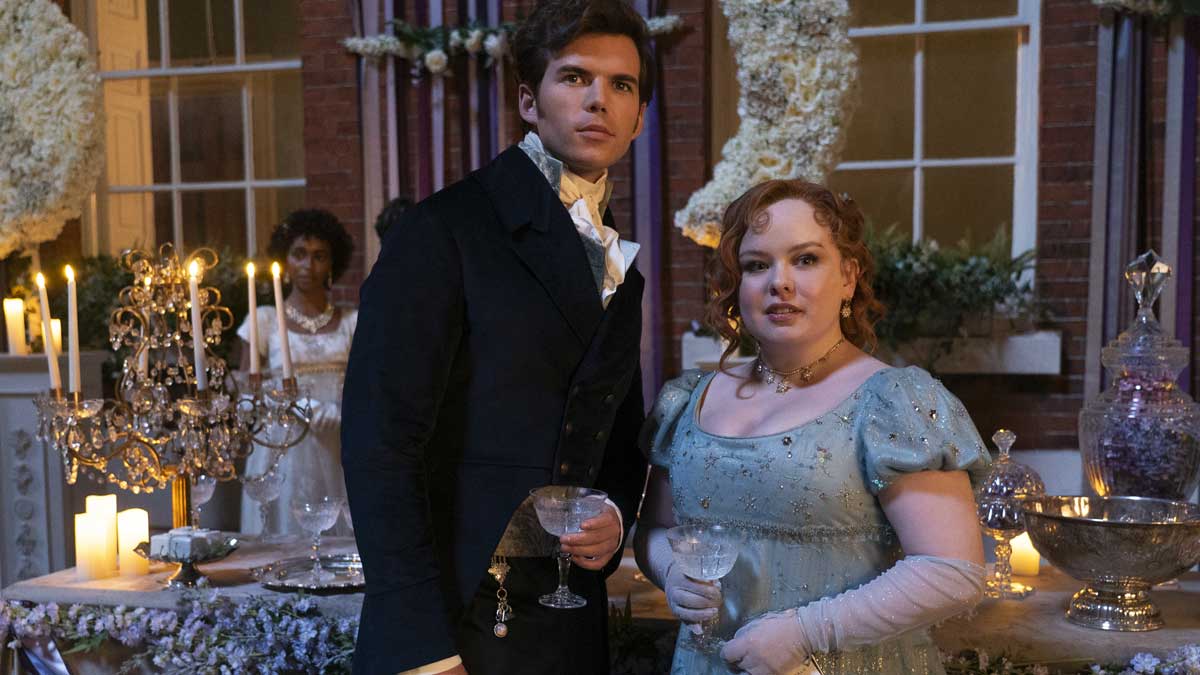
The much-anticipated third season of Bridgerton has arrived, delighting fans with its intricate storytelling, sumptuous costumes, and complex characters. This season, the spotlight shifts to our beloved wallflower, Penelope Featherington, offering a fresh perspective on the social dynamics and emotional intricacies of Regency-era society. As we delve into this new chapter, let's explore the psychological impact of being a wallflower and the transformative journey from the shadows to the centre stage.
Table of Content:-
The Wallflower's Journey: From Background to Forefront
In Bridgerton's latest season, the narrative turns to a character often overlooked—Penelope Featherington. Traditionally seen as shy, reserved, and overshadowed by more outgoing peers, she possess a quiet strength and depth that often goes unnoticed. This season promises to unveil the layers of her personality, revealing the inner turmoil and resilience that define their character.
View this post on Instagram
The Struggles of Being a Wallflower
Being a wallflower comes with its own set of challenges. In a society that prizes extroversion and social prowess, those who are introverted can feel marginalised and undervalued. This season of Bridgerton poignantly portrays these struggles, depicting the loneliness and frustration that accompany a wallflower's existence. Through this portrayal, the show sheds light on the emotional toll of being constantly overlooked.
Social Isolation and Loneliness
Wallflowers often experience a profound sense of isolation. While their presence at social gatherings is physically apparent, emotionally, they might feel invisible. This feeling of being on the periphery can lead to intense loneliness, as they watch others effortlessly engage and form connections. The show captures this emotional solitude, highlighting the internal battles fought behind quiet exteriors.
Self-Worth and Identity
Another significant impact of being a wallflower is the questioning of self-worth. Constantly overshadowed by more gregarious peers, wallflowers might struggle with feelings of inadequacy. Bridgerton delves into this aspect, showcasing the inner conflict of our protagonist as they grapple with their identity and value in a society that often measures worth by social standing and charisma.
The Psychological Resilience of Wallflowers
Despite the challenges, wallflowers possess a unique resilience. Their introspective nature allows for deep self-reflection, often leading to a stronger sense of self and a richer inner world. This season of Bridgerton beautifully illustrates this resilience, as Penelope navigates her way through societal expectations and personal growth.

Finding Inner Strength
The journey from wallflower to centre stage is not just a physical transition but a psychological evolution. Our protagonist's growth reflects the inner strength that wallflowers develop over time. Their quiet observation and thoughtful nature become assets, enabling them to navigate social landscapes with a nuanced understanding of human behaviour.
Overcoming Adversity
Wallflowers often face adversity in subtle yet profound ways. The process of overcoming these challenges fosters a resilience that is both quiet and formidable. Bridgerton's latest season highlights this aspect, showing how our wallflower rises above societal expectations, ultimately embracing her unique qualities and finding her place in the world.
The Broader Implications: Empathy and Understanding
By bringing Penelope Featherington’s experience to the forefront, Bridgerton encourages viewers to develop empathy and understanding for those who often go unnoticed. This season serves as a reminder that every individual, regardless of their social standing or personality traits, has a story worth telling.
Challenging Stereotypes
The show challenges the stereotypes associated with introversion and social reticence. By depicting the protagonist's journey in a nuanced and empathetic manner, Bridgerton breaks down the misconceptions about what it means to be reserved, highlighting the strength and depth that lie beneath the surface.
View this post on Instagram
Promoting Inclusivity
In a broader sense, this season promotes inclusivity by giving voice to those who are often marginalized. It underscores the importance of acknowledging and valuing diverse personalities and experiences, fostering a more inclusive and empathetic society.
Bottomline: A Season of Transformation
Bridgerton Season 3 is a testament to the power of storytelling in addressing complex psychological and social themes. By bringing our beloved wallflower out of the shadows, the show not only enriches its narrative tapestry but also offers profound insights into the human condition. As we follow the Wallflower's journey from obscurity to prominence, we are reminded of the resilience and strength inherent in all of us, regardless of where we stand in the social hierarchy.
Also watch this video
Read Next
Shark Tank Fame Anupam Mittal Opens Up On Anxiety And Panic Attacks; A Guide to Panic Attacks
How we keep this article up to date:
We work with experts and keep a close eye on the latest in health and wellness. Whenever there is a new research or helpful information, we update our articles with accurate and useful advice.
Current Version